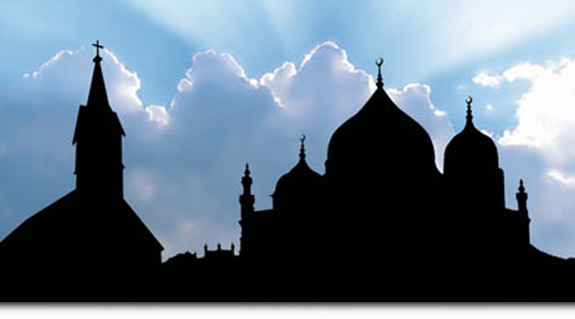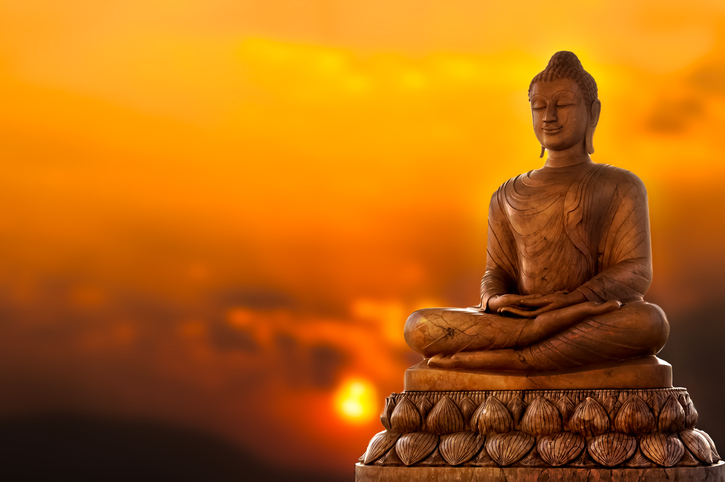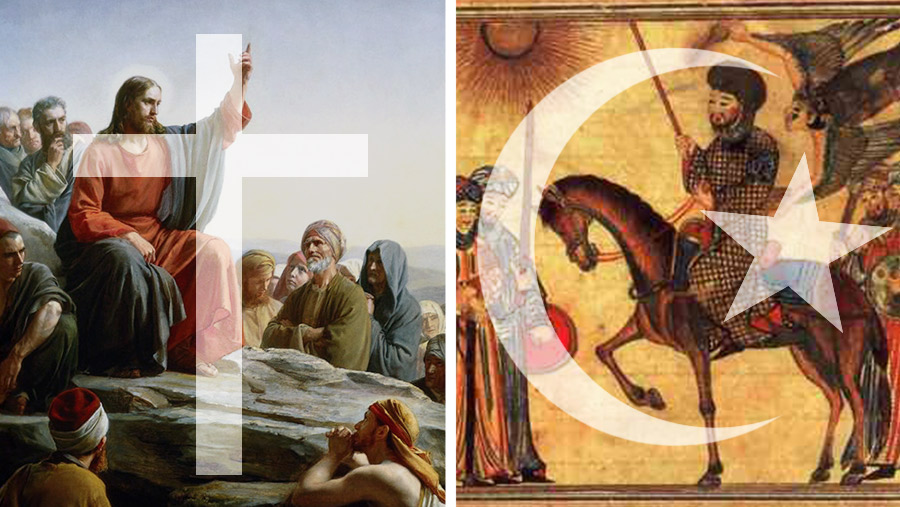It’s strange how one can sometimes have more in common with people that hold opposite views than one does with people who hold very similar views Such is the case with Buddhism, a ‘God-less’ religion with which I have much sympathy, but little simpatico.
Lest I play into the hands of believers who are willing to kill or be killed for their idea of God, let me be clear about the term ‘God-less.’ The belief in a paternalistic, patriarchal, all-knowing ‘Creator’—in other words, monotheism—is a projection from humankind’s adolescence that has become one of the biggest stumbling blocks to spiritual growth in the 21st century.
It is no coincidence that both sides in the putative ‘clash of civilizations’—Christianity and Islam–hold the same core belief. Despite all the talk of shared Abrahamic roots, the belief in a single, distinct deity is the most divisive idea that the human mind has ever fabricated.

The God that the terrorists praised as they flew jetliners into the World Trade Towers has no less validity than the God that George Bush was certain supported him in his invasion and occupation of Iraq. It’s the ultimate projection of the human mind, and results, as we see in Donald Trump, in a blowback of evil to the ‘homeland.’
Monotheists venerate not the holy, but the power of the human mind projected infinitely. Just because there is no separate, Supreme Controller in the sky however, does not mean there is no such thing as God or sacredness.
There is no ‘Creator’ in Buddhism, and therefore many refer to it as a philosophy, rather than a religion. To that extent I feel an affinity. But that marks the point of both my congruence and divergence with Buddhism.
Perhaps because Buddhism has no adequate philosophy of evil (whereas Christianity’s philosophy of evil externalizes and spreads it), it is powerless to confront the evils embodied in the Chinese government’s strangulation of the Tibetan people and culture, or the internment of hundreds of thousands of Uyghurs. Whatever the degree of enlightenment of past and present Buddhist leaders, the 5th century BCE religious explosion ignited by Siddhartha Gautama is no longer sheds light in the darkness of our 21st century world.
This is even truer in countries where Buddhism has been transplanted, such as the United States. Despite its claim to the contrary, Buddhist spirituality and philosophy, which organically sprang up in Eastern cultures, cannot be transplanted to the West, where the rootstock is dead.
In America, the widespread adoption of Buddhist ideas has not prevented the darkness and deadness of this culture from becoming even more pervasive. Despite Buddhism’s core mission to awaken people from “the sleep of ignorance,” more and more people are sleepwalking. In fact, many who have embraced Buddhism have just added another layer of cunning avoidance to the hellish cultural conditions of America.

A reader recently expressed the view, common among American Buddhists at least, that “There have been many creations and destructions of the universe…the universe has gone through such perils as we are now seeing on earth many times.” Such ideas take detachment beyond indifference to absurdity.
Perversely comforting notions like that allow Buddhist adherents in the West to remove themselves from the world, even as they see themselves rising above it. This studied separation works well for many in our hyper-individualized culture, grafting Buddhist detachment onto the rotten tree American self-centeredness, while attaining a “Higher Self.” It’s why American Buddhists often express a stunning self-ignorance, and say things such as: “I see the light and darkness in a large overview.”
The creative explosion ignited by Siddhartha 2500 years ago was a regional phenomenon. Like the teachings of Jesus, the living truth has been extinguished by competing traditions, not to mention the mad rush toward materialism. Even so, it’s said there are still places in India where one can catch a whiff of the original perfume.
Be that as it may, insight into and liberation don’t require tradition and ritual. Indeed, they impede it. Awakening means allowing passive awareness to grow into undirected attention, and attention to open the door to wholeness, timelessness and holiness.
Martin LeFevre

